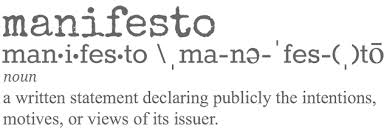A new audience manifesto published by Manchester’s Royal Exchange calls for theatre to “demonstrate more ethnic diversity” and “connect more with ordinary people”.
Believed to be the first publication of its kind, the manifesto outlines what audiences want from theatres following a two-year survey of 2,150 people.
It was presented on February 20 as a written booklet and a performance at symposium event You, the Audience, which explored the relationship between audiences and theatremakers.
The Royal Exchange has been surveying its audience members for the past two years, and from this a series of statements were drawn up relating to what audiences want from a contemporary theatre.
Audiences were asked to vote on shortlisted statements, with the 17 they most related to appearing in the manifesto.
Points on the manifesto included “I want the theatre to challenge all of us”, “I want theatre to be a place to relax”, and “I want theatre to be a place for children”.
Many of the statements were linked to diversity and inclusivity, calling for the theatre to be a place where “everyone feels welcome” and that “gets into communities and listens”.
Royal Exchange director of engagement Amanda Dalton said: “Given we are a large producing theatre, we were rather pleased that the voters didn’t say they wanted us to change our programming and that they wanted more classics. We were also surprised that pay-what-you-can tickets were not in the top 10.
“As a result of this process we have have already changed a number of things as we have been getting ideas.“
Dalton added: “I hate filling out theatre feedback forms. I think asking someone who has just come out of watching a piece of theatre to measure it or tick boxes is absurd, it doesn’t recognise the ways in which we experience emotion and it’s often a bit insulting to the audience and the work.
“I’m yet to see an audience questionnaire that feels audience centred. They might influence the funding, but do they influence the work? They might give us data, but do they give us any real knowledge of people?”
The audience manifesto was created to help the Royal Exchange rethink who its audiences are and how to best to engage with them.
As the next step, audience members – at least half of whom have not engaged with the theatre before – will be invited to help the theatre develop a response to the manifesto.
Other speakers at the symposium included Annabel Turpin, Chief Executive of ARC in Stockton on Tees.
Speaking about audience engagement, she said: “I want people to enjoy theatre on their terms. Does it really ruin the show if someone’s phone goes off? We go to the theatre for a live experience, but we somehow act as if the audience is dead. For some people, looking at their phone is what helps them to relax. For others, sitting still is uncomfortable.”
Audience manifesto in full
1. I want theatre to challenge me, I want it to challenge all of us
2. I want a theatre where absolutely everyone feels welcome
3. I want a theatre to be a safe place for difficult conversations
4. I want theatres that everyday people can afford to go to
5. I want theatre to demonstrate more ethnic diversity on and off stage
6. I want theatre to be a place for children
7. I want theatre to know it belongs to the public and to reflect this in everything it does
8. I want a theatre that knows everyone can make theatre
9. I want a theatre that understands theatre can happen anywhere and should happen everywhere
10. I want a theatre that gets into communities and listens
11. I want a theatre that recognises that the audience is part of the performance
12. I want theatre to connect more with ordinary people
13. I want theatre to speak for people whose voices wouldn’t be heard otherwise
14. I want theatre to be demanding and entertaining at the same time
15. I want theatre to allow me to walk a mile in someone else’s shoes
16. I want to be transported into different lives and worlds
17. I want theatre to be a place to relax
Source: Manchester Royal Exchange audience manifesto commits to ‘connect with ordinary people’



